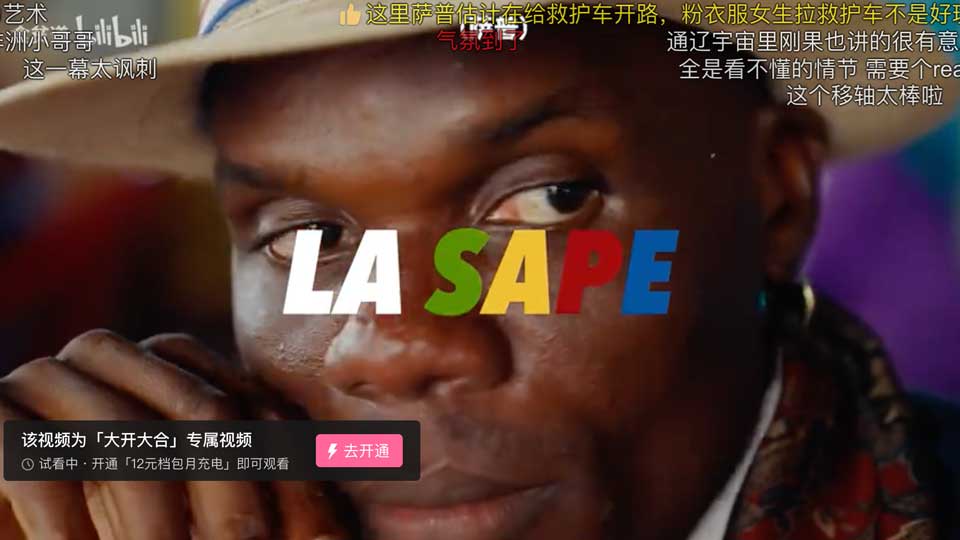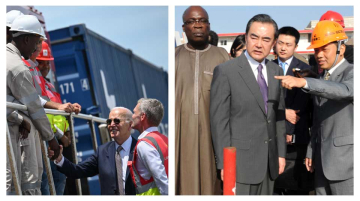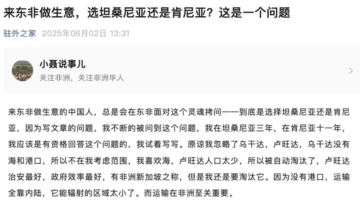
A newly released 2.5-hour documentary titled The Fashion Bible by Chinese travel vlogger and former state media journalist Zhang Jun, known online as “Uncle Bing” (饼叔), has quietly dropped on the Chinese social video platform Bilibili, offering one of the most ideologically layered explorations yet of la Sape, the flamboyant fashion subculture in the Republic of Congo.
Zhang’s camera follows Congolese sapeurs, known for dressing in sharp, high-end suits in some of the world’s poorest neighborhoods, tracing their sartorial inspirations all the way to the heart of European luxury, Paris and Milan. But unlike earlier documentaries that focus on la Sape through a post-colonial lens, The Fashion Bible introduces a distinctly Chinese perspective.
Through interviews with luxury insiders, aspiring models, and Italian craftsmen who hand-make high-end bags, Zhang probes a deeper question: why do these brands hold such global symbolic power? Without offering hard proof, the documentary also raises a provocative claim that many “Made in Italy” luxury products are, in fact, manufactured in Chinese factories.
This thread links the film to a broader, increasingly visible conversation online: during the peak of the U.S.–China tariff war in April, TikTok influencers and factory owners exposed how Western luxury brands depend heavily on Chinese manufacturing, while platforms like DHgate gained traction for offering near-identical products at a fraction of the price.
One of the documentary’s most striking moments comes early on, when a sapeur proudly showcases his wardrobe. Among the designer pieces is a sharp, made-in-China suit from a Chinese brand.
The film also contrasts two sapeurs with divergent ideologies. One challenges the hegemony of European brands by launching his own African fashion label and weaving it into la Sape. The other remains devoted to the traditional sapeur ethos: investing every cent into legacy European labels to preserve authenticity.
Why Is This Important?
The Fashion Bible expands the usual narrative around fashion, luxury, and post-colonial identity. It reframes the conversation through the eyes of a rising manufacturing power that now questions the myths it once helped sustain. This is not just a film about Congolese dandyism or European branding. It’s an ideologically charged meditation on how global production, aspiration, and identity are being renegotiated.








